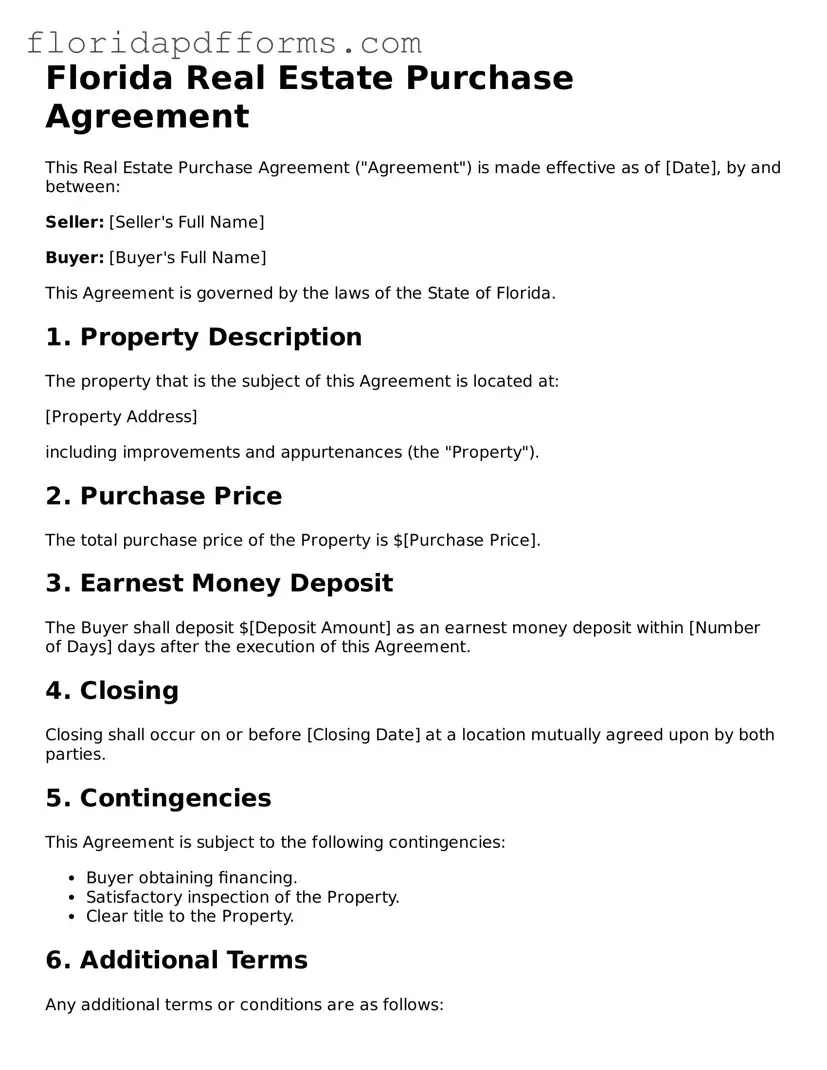Official Real Estate Purchase Agreement Template for Florida
The Florida Real Estate Purchase Agreement form is a crucial document that outlines the terms and conditions of a property sale in Florida. This agreement serves to protect both buyers and sellers by clearly defining the rights and obligations of each party involved in the transaction. Understanding this form is essential for anyone looking to navigate the real estate market in the Sunshine State.
Ready to take the next step? Fill out the form by clicking the button below!
Modify Real Estate Purchase Agreement Now

Official Real Estate Purchase Agreement Template for Florida
Modify Real Estate Purchase Agreement Now

Modify Real Estate Purchase Agreement Now
or
⇓ Real Estate Purchase Agreement File
Don’t stop halfway through your form
Finish your Real Estate Purchase Agreement online with quick edits and instant download.